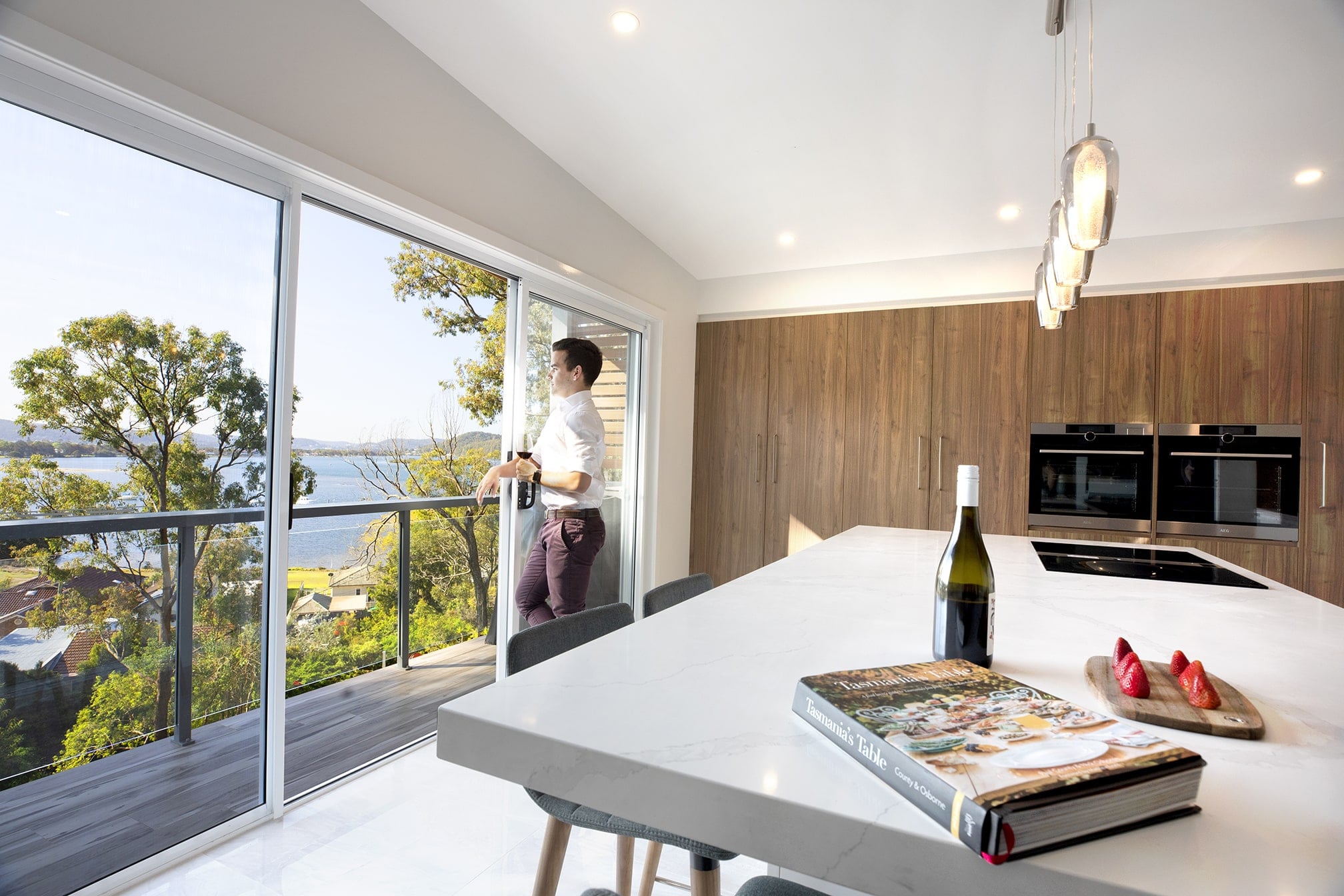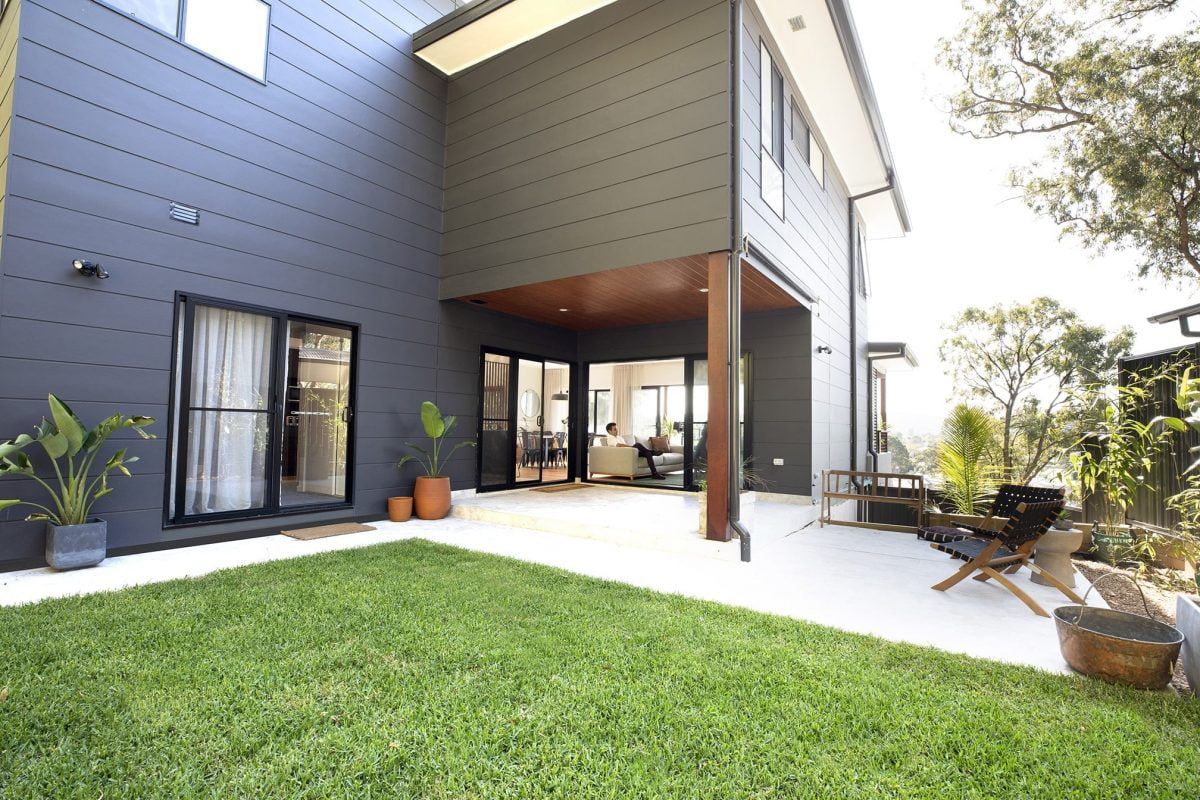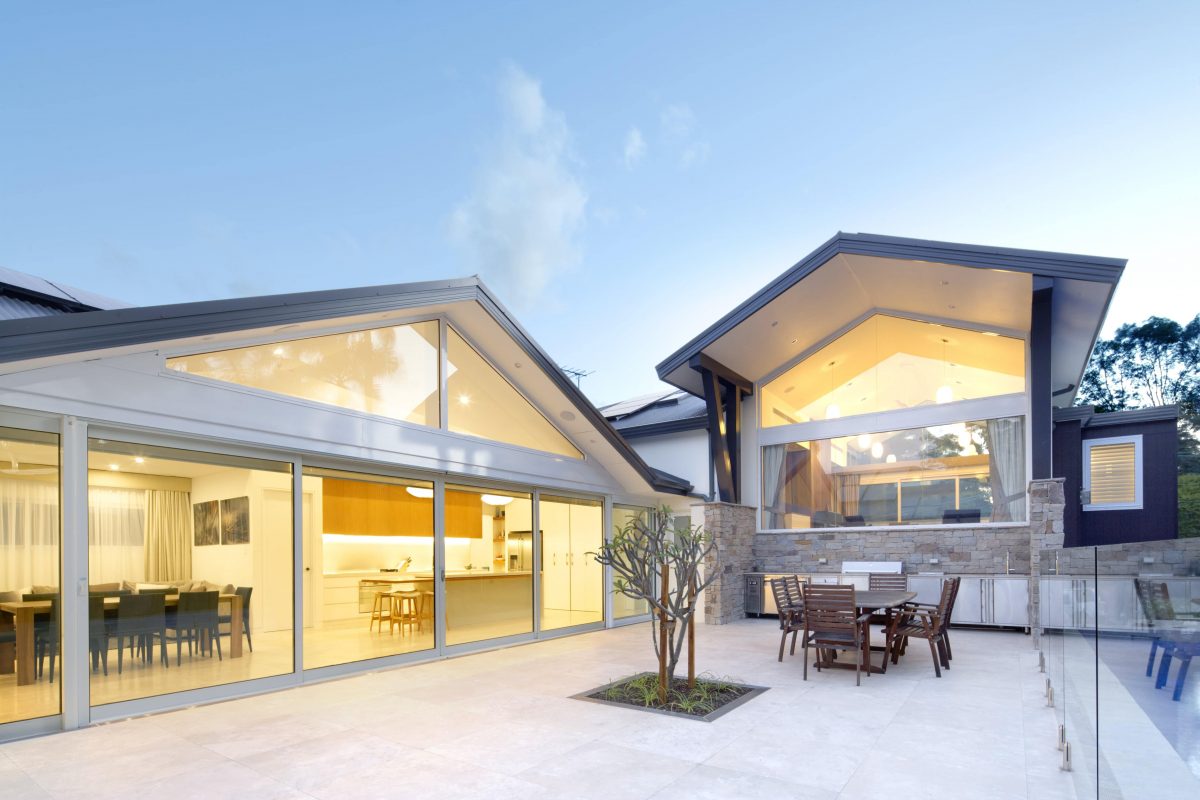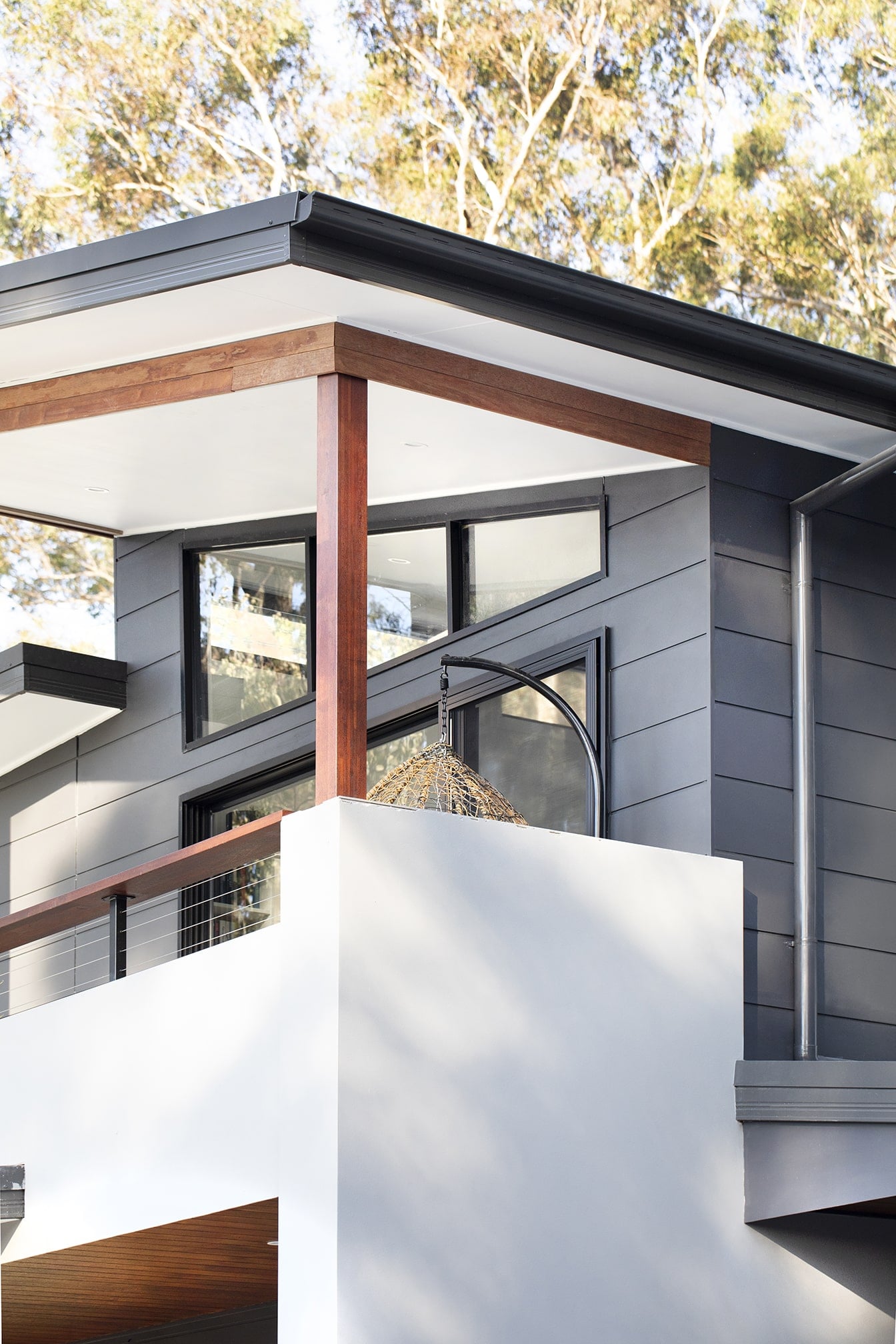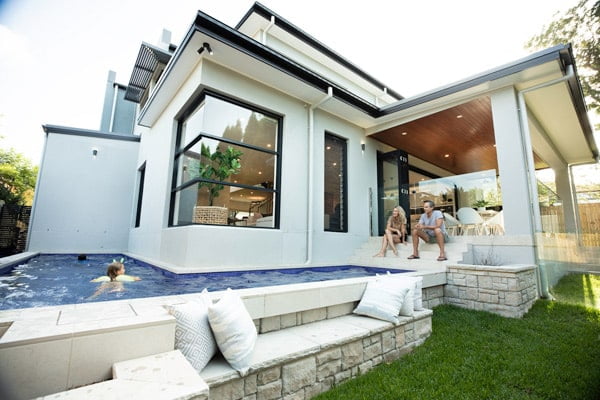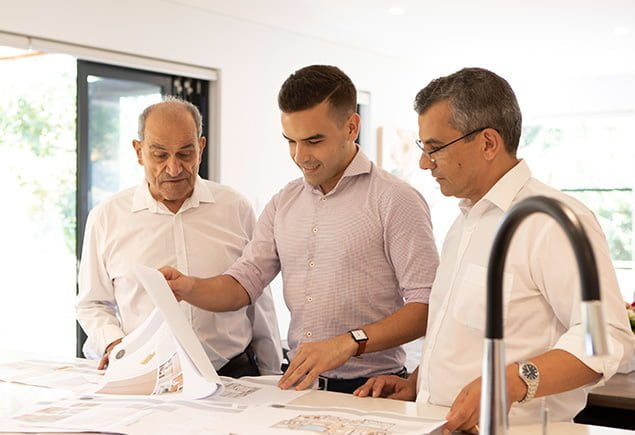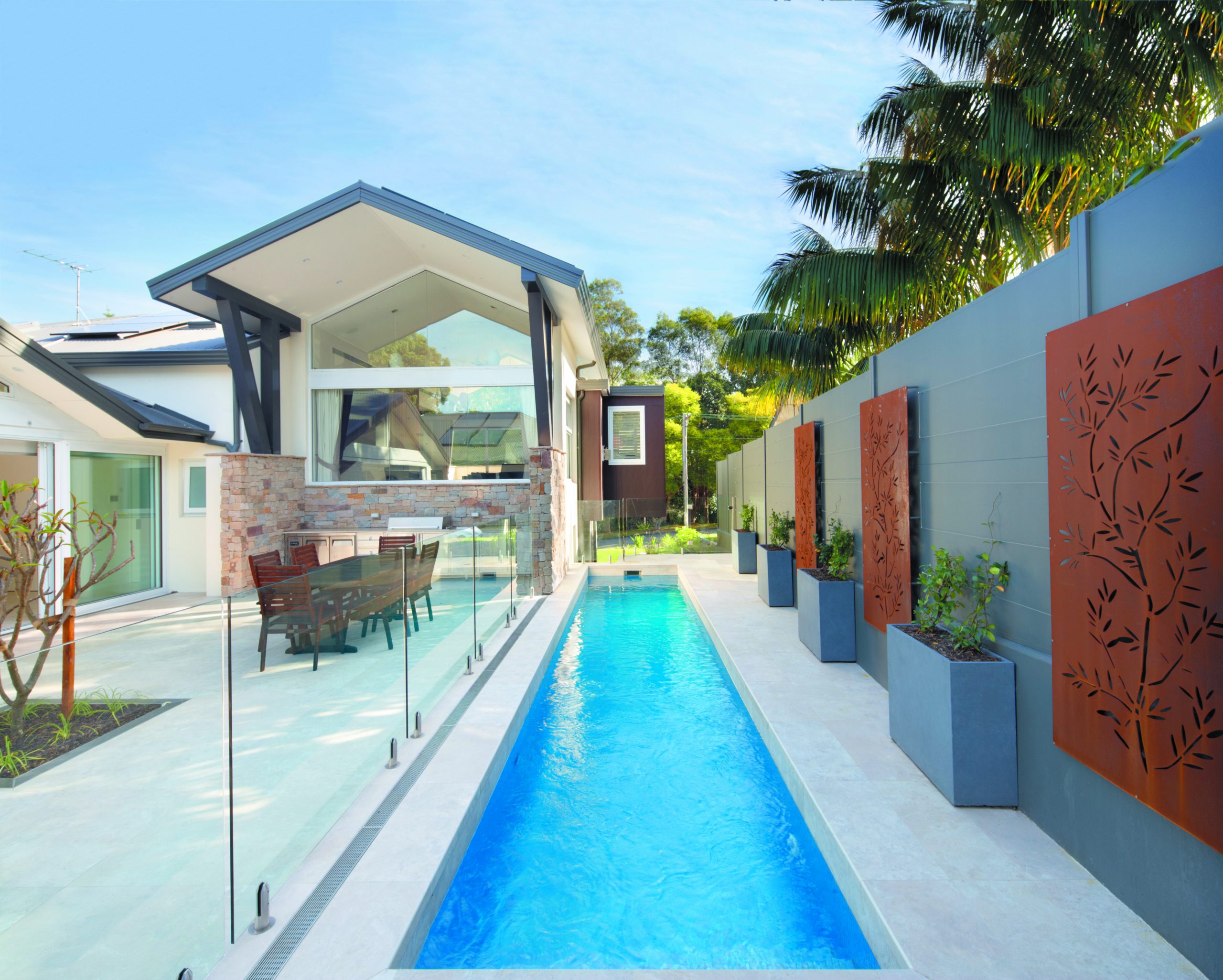Is your home starting to show its age? Perhaps it’s had a few additions over the years and the cracks are starting to show. Maybe there’s a long to-do list you’ve been postponing, from plumbing to structural work to painting. For many homeowners, this is the point when they choose between pouring money into fixing their existing home and starting afresh. And it raises one big question: how much will it cost to knock down and rebuild in Sydney?
It may be surprising to hear that the cost per square metre can actually be cheaper than renovating. Of course, exact prices are site-specific so there is no one-size-fits-all price guide. To help you get a vague idea of the costs associated with a knock down rebuild in Sydney, we’ve outlined the contributing factors that may increase or decrease the final price.
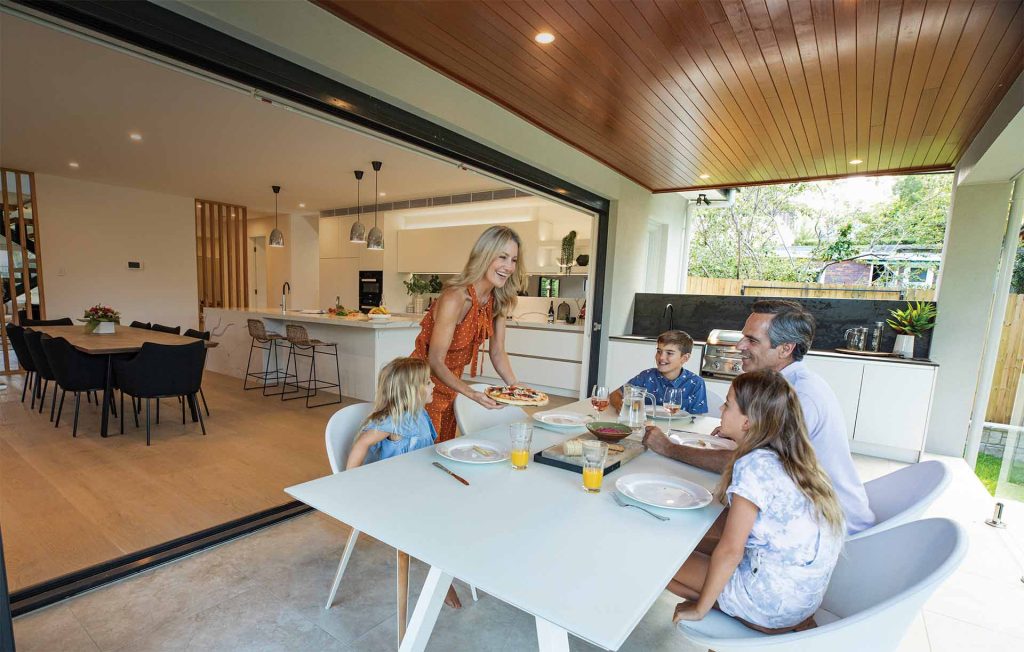
Comparing renovating costs versus knock down rebuild cost in Sydney
It’s worth considering the costs on either side of the decision. On one hand, renovations can quickly become expensive, with no guarantee of a polished finish. Some homeowners might face quotes of $10,000 or more to resolve a major plumbing issue, while a new kitchen can cost between $12,000 and $20,000 on average. Kitchen and bathroom remodels are common in older houses, and both of these projects can take a significant budget to complete professionally.
There’s also the chance of unexpected issues arising from renovation projects, such as fixing previously unknown structural issues, rotting timber, termites or mould. The possibility of uncovering unexpected problems makes it difficult to accurately predict costs and timing when renovating.
Of course, careful budgeting and planning are not only required for renovations. There are also important factors that must be carefully reviewed if you are considering the standard knock down rebuild cost in Sydney. Demolition, design and the manual building process must all be incorporated into your budget when organising the cost of knock down rebuild. While your custom home budget will be entirely up to you, the costs associated with demolition are already generally established by the current condition and location of your property.
How much does it cost to knock down a house?
The exact knock down rebuild cost in Sydney depends on a range of factors, most notably the material that your house is made from. A timber house will naturally be cheaper to demolish in comparison to a home made from brick and cement, as brick demolitions require heavier equipment.
Other aspects that may affect the cost associated with demolition include:
- How easily accessible your property is
- The removal of hazardous materials, such as asbestos or mould.
- How large your property is and the size of the house you are demolishing
Prepare for unexpected costs
It can be difficult to preemptively determine the exact cost of a knock down rebuild, as each demolition project is as different as the houses being knocked down. Unexpected costs can easily arise from a demolition if hazardous materials like asbestos are found within your property.
If your current house was built before 1990, then there is a chance that asbestos was incorporated within its structure. Due to the serious health implications of asbestos, asbestos removal and disposal can be both a timely and costly task. The cost of removing and disposing asbestos will depend on the exact type of asbestos and how much of it is present within the house.
Site costs
Site costs are the expenses associated with building a home on a specific lot of land. Site costs may include:
- The adjustment of utility services such as gas, electrical, sewer or stormwater.
- Land levelling in the case of sloping block house plans
- Zoning requirements
- Parking or traffic management
The specifics of site costs are covered by your development action (DA), which will address the exact provisions associated with knocking down and rebuilding in your local council.
Find out more about gaining DA approval in NSW here.
Demolition costs
Demolition costs vary from project to project. Factors such as location, neighbouring structures, temporary fences, trees and access to the site will all impact the final cost of knock down rebuild projects.
Accomodation costs
While your house is under construction, there may be associated costs with finding temporary accommodation. Hotels and rental properties may offer a special price if you are planning on staying for an extended period of time. You may also be able to cut costs by staying with friends or family for free.
It’s important that you are fully aware of the custom home build timeline before committing to your temporary accommodation. This will ensure that you correctly budget your accommodation costs and factor this into your overall project.
Non financial costs
There can be another, less tangible cost to renovations and rebuilds, and that is the potential emotional toll. The time and energy spent on finding and vetting multiple renovation contractors and monitoring their work can be draining – and doing renovation work yourself is a whole new level of tiring!
Building a new home also requires working with an experienced team to realise an end goal, so that you can experience a smooth and stress-free process. At Wincrest Bespoke we have a dedicated project manager on each build who is your main point of contact for our services, and our team provides a fixed price for the project to provide peace of mind. From design to finish, you can rest assured knowing we’ll guide you through the process without pressure or hidden costs. That feeling in itself can be invaluable.
The end product
Ultimately, the knock down rebuild process results in a custom-built home that is worth the associated costs and waiting time. Your final home will be tailored to your exact needs in a way that is impossible to achieve by purchasing a pre-existing property. You’ll have living spaces that are designed for your family and the way you love to live. You could have plenty of storage, from walk-in closets to spacious pantries. You’ll also have a home that uses your block of land to its full potential. That can eliminate a range of problems that an existing property can have – from awkward garage entries, to living spaces that cost a lot to heat because of their poor design.
Wincrest Bespoke specialises in designing and building custom home designs that capitalise on the innate benefits of your lot while also putting your design objectives at the forefront of the project.
Ready to get started? Get in contact with Wincrest Bespoke
Our experienced team is ready to help you build your dream home. To discover how you could transform your pre-existing house into a home that is perfect for your lifestyle, get in touch with us today.
